Siffan is a manager at a clinic for refugees in Ottawa. She shares the rewards and challenges of working with a diverse clientele who are often traumatized yet resilient and hopeful about a new start in a new country.
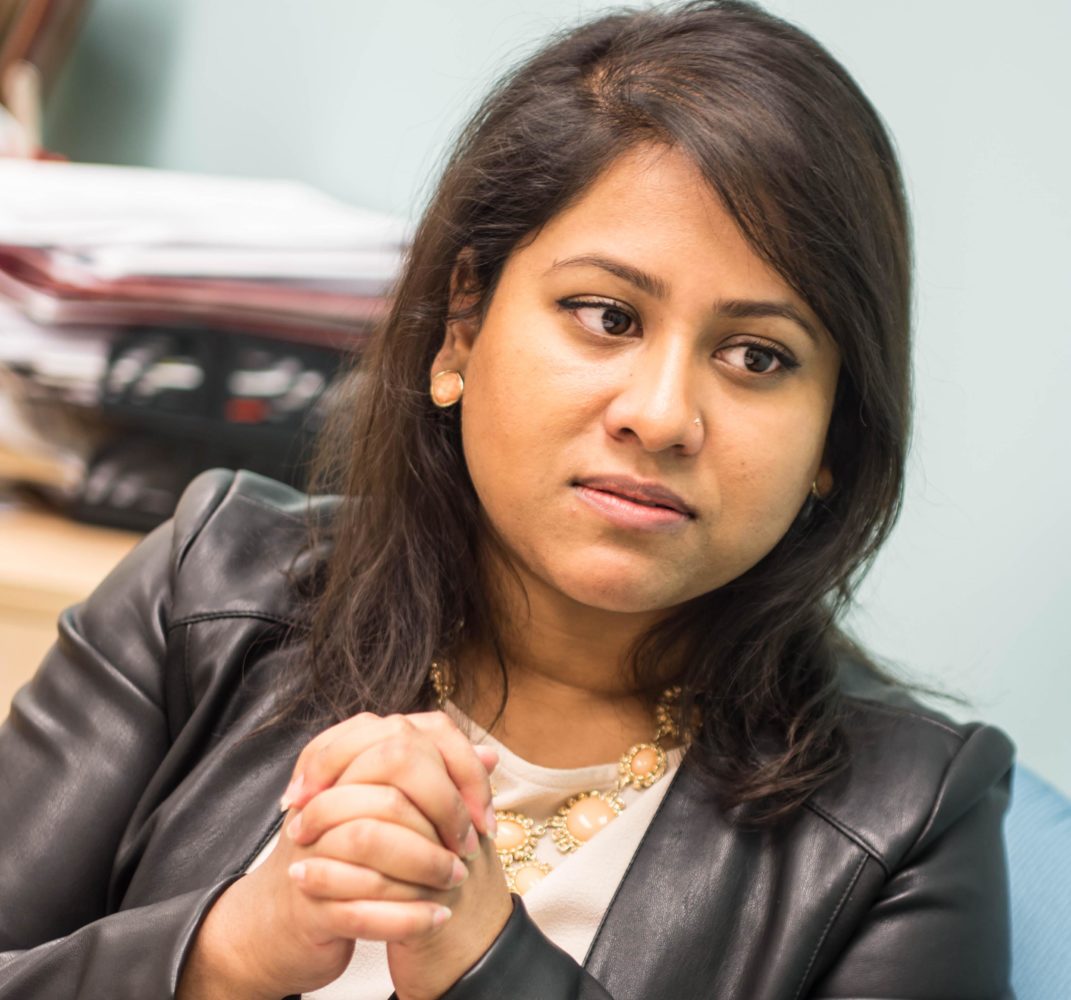
“The number of clients that came from Syria between December 2015 and March 2016 was huge and our resources were limited.”
Bringing in all these clients all at once was really not a good experience. Not from the service care provider side, and not from a client’s perspective either.
“Some clients felt that they were being ignored. They had hopes of coming here and everything would be completely different. Yet sometimes nobody visited them for quite some time. They wondered what was going on. It was completely chaotic.”
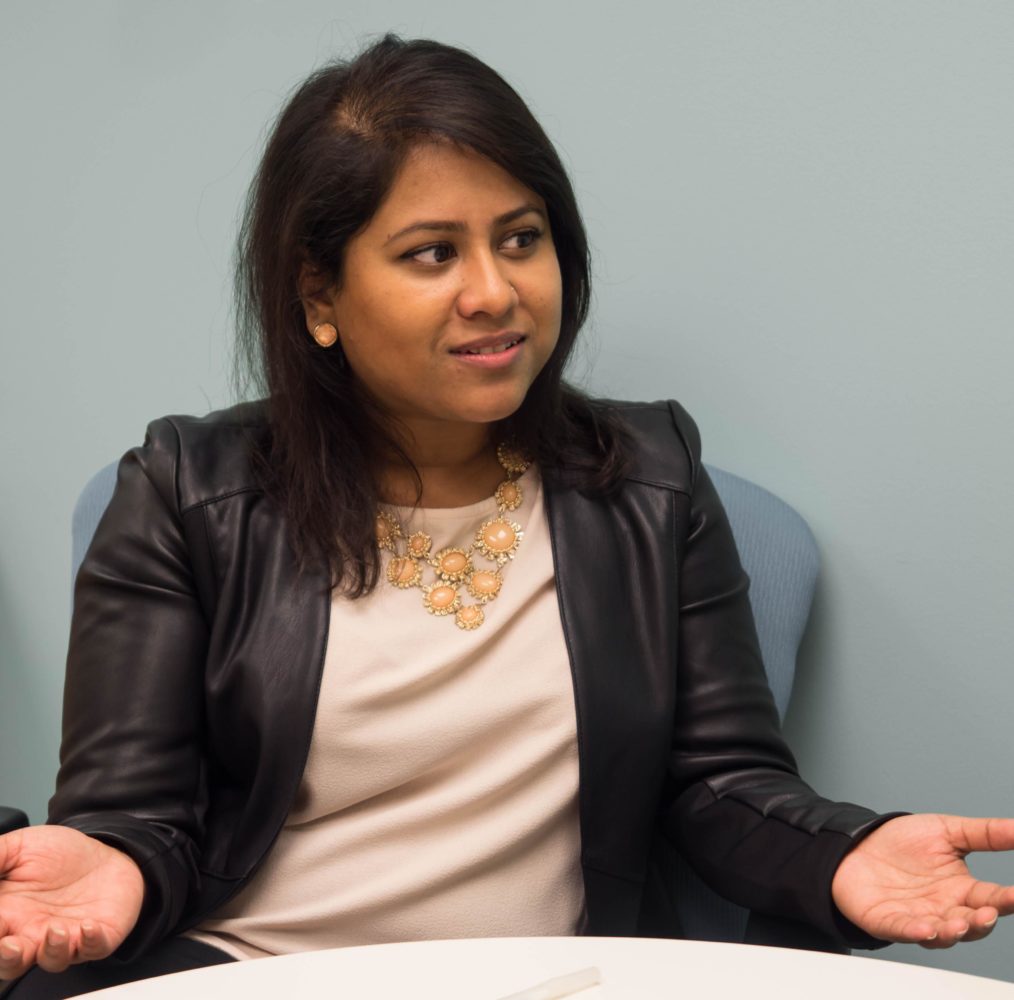
“I would say language is the number one challenge.”
“Anybody coming in as a GAR – a government-assisted refugee – has to go to school to learn English. The schools are really great. The clients with a bit of education in their own country pick up English in about six to seven months. But a lot of the Syrians are uneducated in their primary language. They have a hard time even reading Arabic. Because of that lack of experience with an education system, even picking up little things is harder. So, it takes longer.”
“If they don’t speak English or French, employment is a problem. However, there are some jobs you can do with very limited English. When the Karens (an ethnic minority in Myanmar) arrived, a farmer hired all these refugees who didn’t have any English but could do things on the farm – he was recognized at one of the UNHCR World Refugee Days. So, the refugees were employed, they were happy and they were contributing members of society.”
“Many of the government-assisted refugees are young families with kids. Not a lot of education and a few of them have a lot of health needs. There were some very sick kids among the recent Syrian GARs. A surprising number of genetic disorders. Palliative kids that we’ve never seen in other refugee communities. This really strained the pediatric healthcare system.”
That’s been a huge struggle. We weren’t ready for so many sick kids.
“With the privately sponsored refugees it’s the opposite. They have smaller families. Some speak either English or French or both. They are more educated, many have worked as professionals, and they tend to be healthier.”
“I see clients come in smiling and then, when I read their history, I think, ‘How are you even smiling? Seriously! How are you walking around smiling?’ Because it’s incredible what they went through. They have come to this new world with lots of hopes.”
How do I help them sustain that hope? That’s one thing that keeps me here.
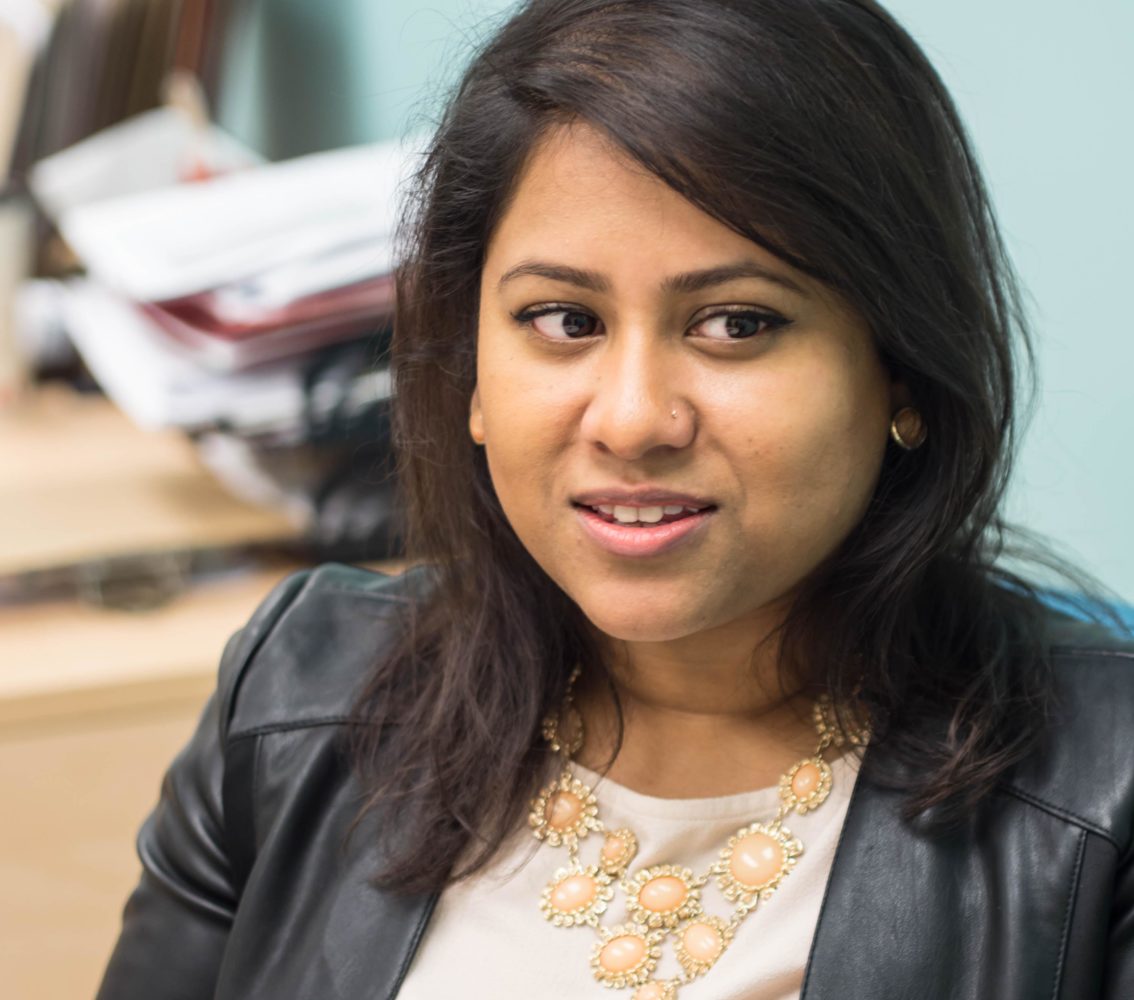
“Government assisted refugees are permanent residents and are covered by the Interim Federal Health Program. So they get emergency dental and optometry coverage. If somebody is palliative and needs a bed, that is covered. It’s very similar to what someone in social assistance would get. But there are gaps.”
If a new baby is born here, that baby doesn’t get any health coverage from IFHP. We had a child with sickle cell anemia who couldn’t get her medications covered. Her mother was a single mom – how was she going to afford it? Sometimes those gaps make a huge difference in the clients’ lives.
“Psychiatrist and psychotherapist services are covered, but only within the first year. Nobody was screening for post-traumatic stress disorder in that year because best practice guidelines tell us if you are not going to refer them right away, don’t re-traumatize them. If they are screened later, or they develop obvious symptoms, it’s near the end of the first year, and they don’t get services. Although they have OHIP to see a psychiatrist, the wait lists are long and often the services are not language appropriate.”
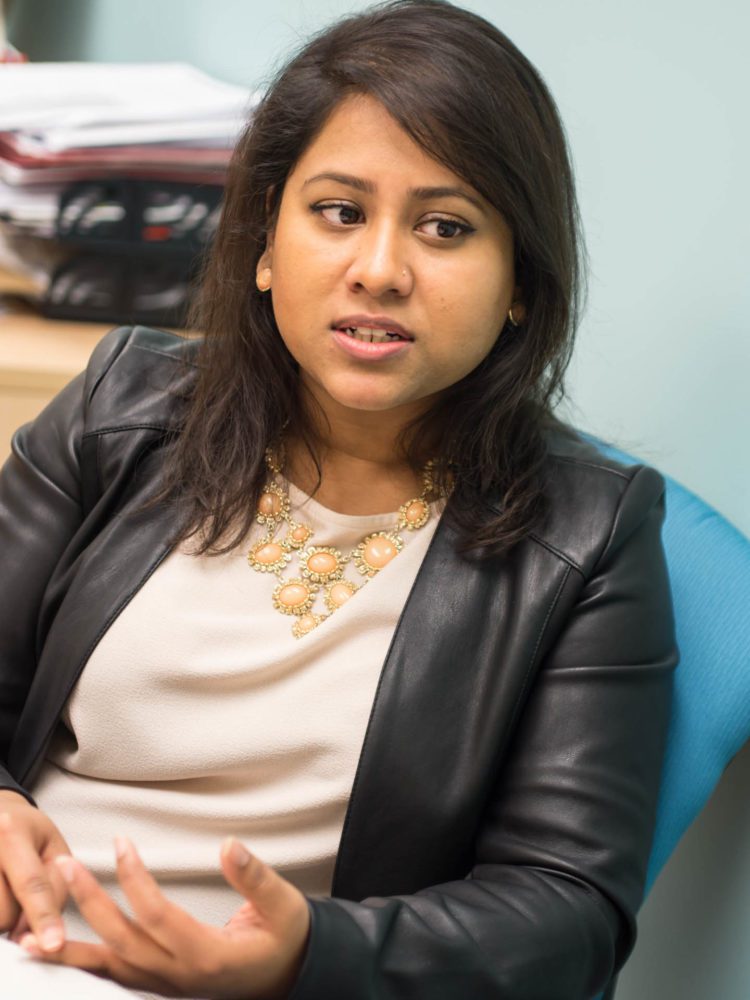
“We have a multicultural navigator program. We hired a person from the refugee’s community who speaks the language and understands the culture. The navigator provides education about our healthcare system and does home visits, and accompanies them to some appointments.”
“Mainly we want to empower clients so they can take their health into their own hands. We do this for up to two years. We have six navigators who can provide services in up to 10 languages. But there is only one navigator per language and Arabic is spoken in so many different countries, right? We have a wait list of more than two months for that navigator now.”
“The Francophone navigator who speaks Swahili also has a wait list. We have Nepali, Somali, Spanish and Farsi, Dari, Pashto. Because of the success it has become a permanent program, funded by the Local Health Integration Network.”
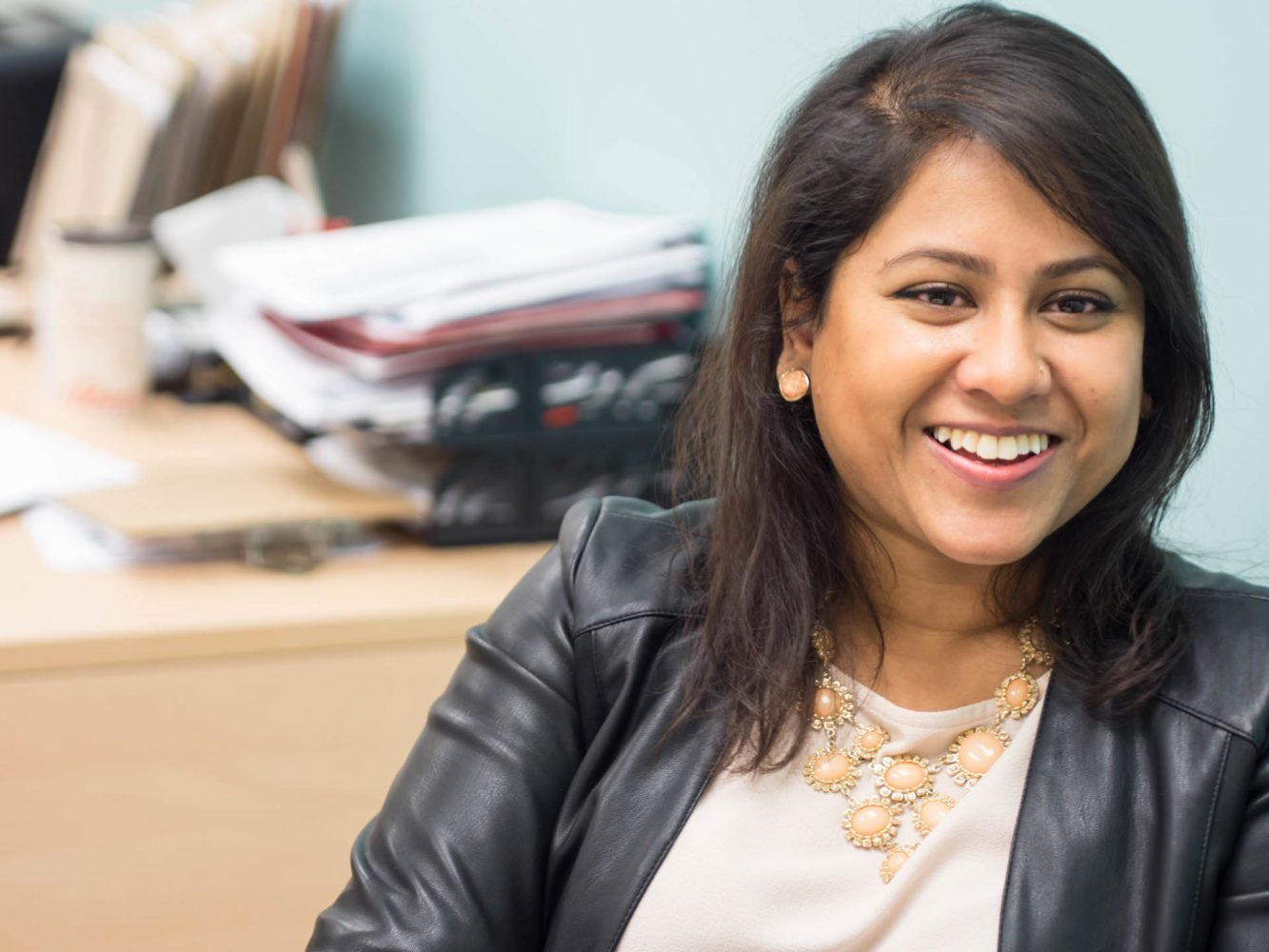
“The Syrian refugees will have been here for a year soon, and they are stressed. For those who haven’t found work, their supports are coming to an end. The financial support from the federal government they are getting in the first year is quite different from what they are going to get from the provincial social assistance program. They are going to have to cut down on things. Once they go into social assistance they may not be able to afford their current rent. Then what?”
“The world is becoming so globalized. As inhabitants of this earth, we have to be open-minded. But I do come across people who think very differently.”
Do you get into discussions with them?
“I don’t want to get into a confrontation because some are totally stubborn and will never change their mind.”
But we all have a little bit of sensitivity, as human beings. So, I may tell them a story that might make them stop and think.
“For example, a mother came here who had a child die right beside her in a camp, and she didn’t even know for the whole night. She still felt guilty after two years of being here. She couldn’t let that go. She was re-living it over and over. She has a newborn now, but she can’t let go of her past experience. I am hoping that story might make people go, ‘Hmmm.’”


The comments section is closed.